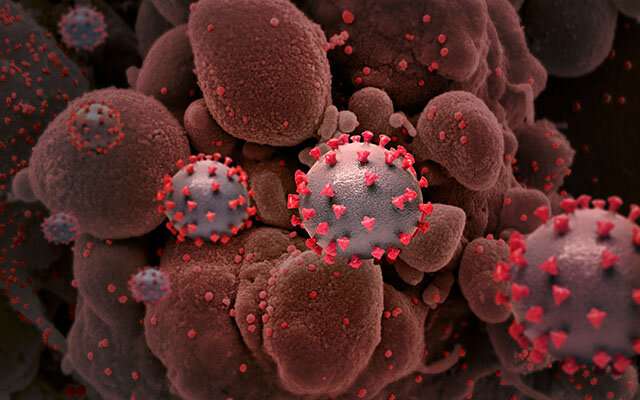Study provides novel platform to study how SARS-CoV-2 affects the gut

How could studying gastrointestinal cells help the fight against COVD-19, which is a respiratory disease? According to a team led by Gustavo Mostoslavsky, MD, Ph.D., at the BU/BMC Center for Regenerative Medicine (CReM) and Elke Mühlberger, Ph.D., from the National Emerging Infectious Diseases Laboratories (NEIDL) at Boston University, testing how SARS-CoV-2 affects the gut can potentially serve to test novel therapeutics for COVID-19.
In order to study SARS-CoV-2, models are needed that can duplicate disease development in humans, identify potential targets and enable drug testing. BU researchers have created human induced pluripotent stem cells (iPSC)-derived intestinal organoids or 3D models that can be infected and replicated with SARS-CoV-2.
iPSC are stem cells derived from the donated skin or blood cells that are reprogrammed back to an embryonic stem cell-like state and then can be developed into any cell type in the body.
"Human induced pluripotent stem cell derived intestinal organoids represent an inexhaustible cellular resource that could serve as a valuable tool to study SARS-CoV-2, as well as other intestinal viruses that infect the intestinal epithelium," explained corresponding author Mostoslavsky, associate professor of microbiology at Boston University School of Medicine (BUSM) and co-director of the CReM.
Using human induced pluripotent stem cells (iPSC) the researchers differentiated the iPSC cells into colonic and small intestine 3D organoids. The organoids were then passed along to the Mühlberger lab at the NEIDL where they were infected with SARS-CoV-2 to analyze the effect of infection on the cells by staining against markers, by electron microscopy and by RNA-sequencing.
"Our findings suggests that different epithelial tissues (such as the lung and the gut) react in similar manner to SARS-CoV-2 infection and therefore can help identify common mechanisms of disease that can be targeted by drugs," added Mühlberger, director of Integrated Science Services at the NEIDL and professor of microbiology at BUSM.
These findings appear online in the journal Stem Cell Reports.



















